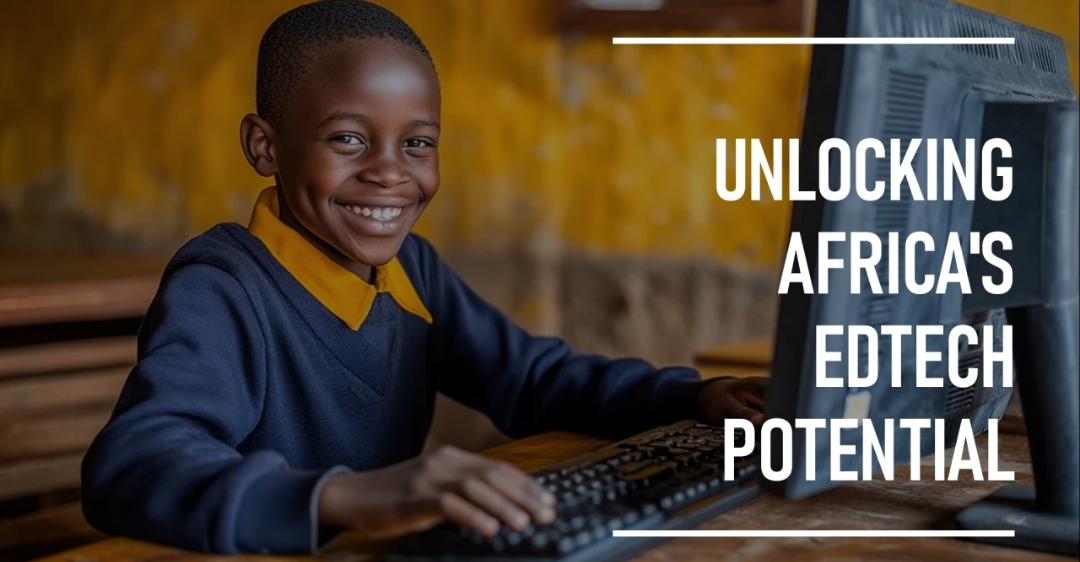
Africa is home to the world’s fastest-growing population, with an estimated 2.5 billion people projected to inhabit the continent by 2050. As the population grows, so does the demand for quality education. However, many African countries face significant challenges in providing accessible, affordable, and quality education to their citizens. This is where Edtech startups come in – leveraging technology to bridge the educational gap and empower the next generation of Africans.
The State of Education in Africa
Africa faces numerous educational challenges, including:
- Limited access to quality education: Many schools lack qualified teachers, infrastructure, and resources, resulting in poor learning outcomes.
- Inequitable distribution of resources: Urban areas tend to have better educational facilities and resources, leaving rural areas behind.
- High costs: Education can be expensive, making it inaccessible to many African families.
- Outdated curricula: Educational content often fails to align with the needs of the modern workforce.
The Edtech Opportunity
Edtech startups are seizing the opportunity to address these challenges by developing innovative solutions that:
- Increase access to quality education: Online platforms and digital resources can reach a wider audience, including those in rural areas.
- Improve learning outcomes: Personalized learning experiences, interactive content, and real-time feedback can enhance student engagement and achievement.
- Reduce costs: Digital solutions can be more cost-effective than traditional methods, making education more affordable.
- Enhance teacher support: Edtech can provide teachers with training, resources, and tools to improve their effectiveness.
Notable Edtech Startups in Africa
Some notable Edtech startups in Africa include:
- Andela (Nigeria): A talent development platform that trains and connects African software developers with global companies.
- M-Kopa (Kenya): A solar-powered educational platform that provides digital content and internet access to schools in rural areas.
- Gradely (Nigeria): A personalized learning platform that uses AI to tailor educational content to individual students’ needs.
- Ulesson (Nigeria): A digital learning platform that provides interactive educational content for students in Africa.
- Sciences Po (South Africa): An online learning platform that offers courses and degree programs in partnership with top universities.
Key Trends in African Edtech
Some key trends shaping the African Edtech landscape include:
- Mobile-first solutions: Many Edtech startups are developing mobile-friendly platforms to reach a wider audience.
- Gamification and interactive content: Startups are incorporating game-like features and interactive content to engage students and enhance learning outcomes.
- Artificial intelligence and machine learning: AI-powered solutions are being used to personalize learning experiences, automate grading, and provide real-time feedback.
- Partnerships and collaborations: Edtech startups are partnering with governments, NGOs, and educational institutions to reach a broader audience and improve impact.
Challenges and Opportunities
While Edtech startups in Africa face challenges such as:
- Infrastructure and connectivity: Limited internet access and poor infrastructure can hinder the adoption of Edtech solutions.
- Funding and investment: Edtech startups often struggle to secure funding and investment to scale their solutions.
- Regulatory frameworks: Edtech startups must navigate complex regulatory environments and ensure compliance with national education policies.
There are also opportunities for:
- Innovation and creativity: Edtech startups can develop innovative solutions that address specific African challenges.
- Growing demand: The demand for quality education in Africa is growing, creating a vast market for Edtech solutions.
- Partnerships and collaborations: Edtech startups can partner with governments, NGOs, and educational institutions to improve impact and reach.
Conclusion
Edtech startups in Africa are transforming the education landscape, providing innovative solutions to address the continent’s educational challenges. As the sector continues to grow, it’s essential to address the challenges and opportunities facing Edtech startups, ensuring that they can scale their impact and provide quality education to millions of Africans. With the right support and investment, Edtech startups can empower the next generation of Africans, driving economic growth, and social development.
